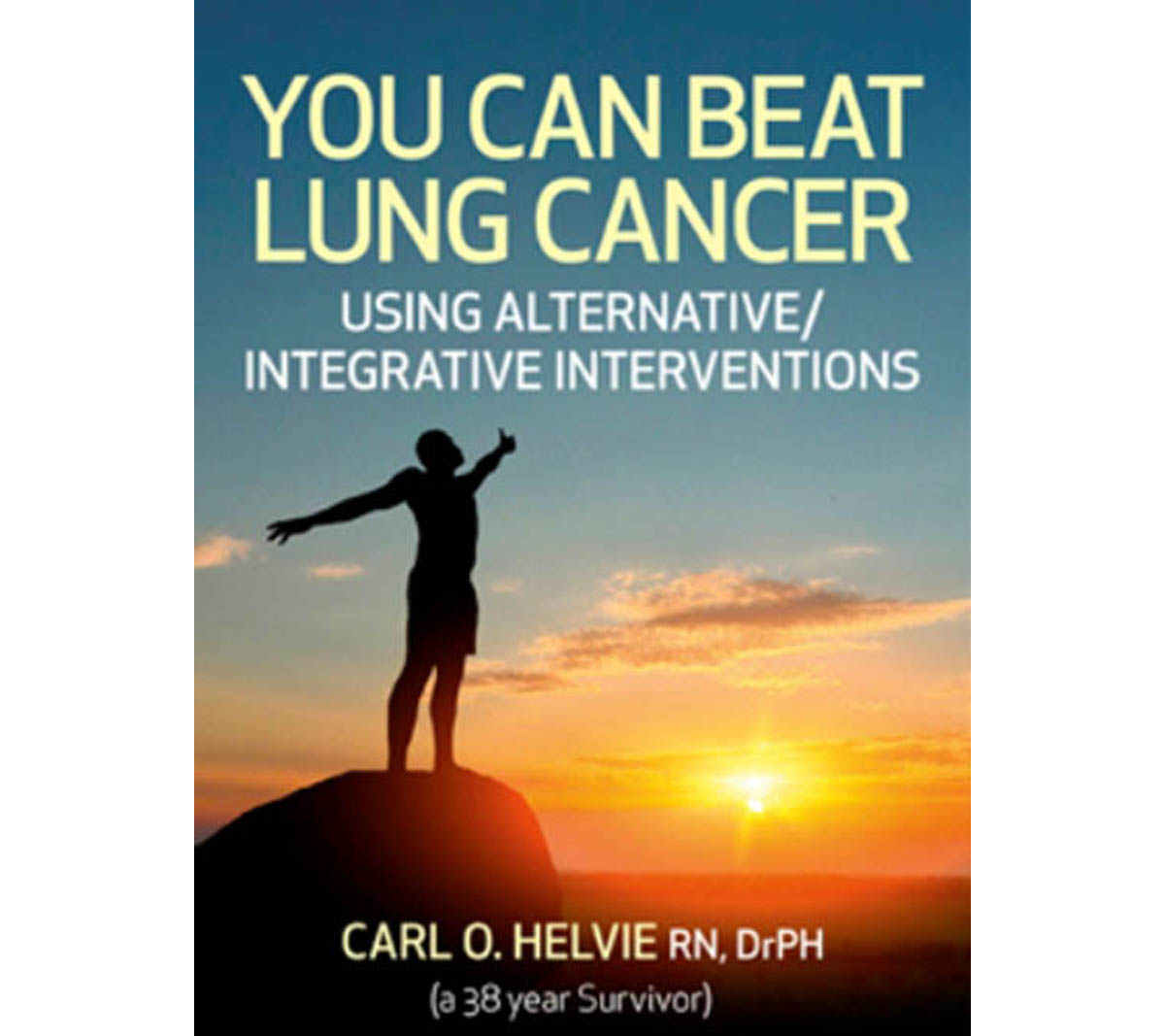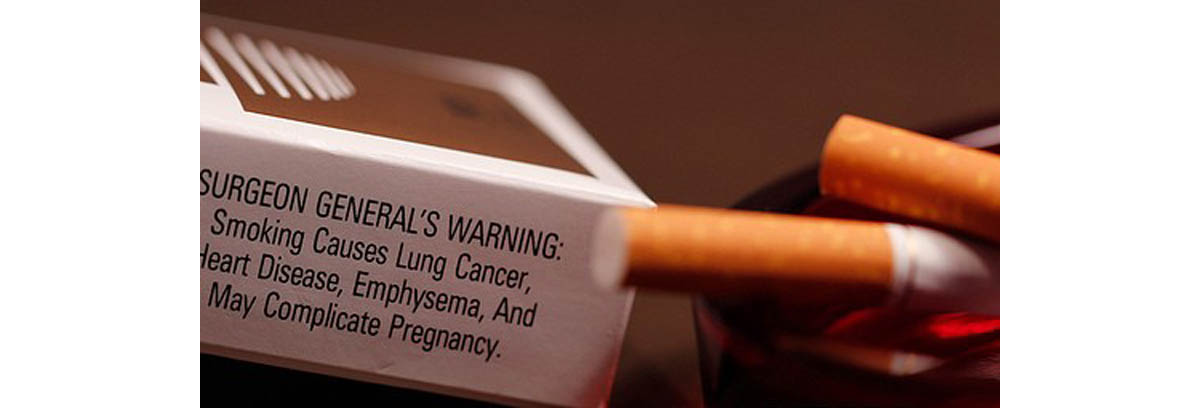Despite an uncountable number of modern medical innovations, lung cancer still remains a lethal disease. Lung cancer is the second most common cause of death in the United States and in many other industrialized countries. It is the leading cause of cancer death.

Dr. Carl O. Helvie, however, not only has survived, at the time this article is being written, 39 years after his diagnosis of lung cancer, he continues to lead an active life at the age of 80.
Dr. Helvie continues to be a nurse practitioner, an author, a researcher, a radio personality, and a a cancer educator, and he doesn't even take any medications. Like many cancer survivors, Dr. Helvie had an inspirational mother.
A Mother's Inspiration
Dr. Helvie wasn't the first member of his family to get a cancer diagnosis. Over 60 years ago, Helvie's mother had been diagnosed with the disease and told she would never leave the hospital. Like more than one mother of minor children, Helvie's mother wasn't going to take the diagnosis lying down.
She "had three children at home and had to make sure they graduated from high school," Helvie recounts. There wasn't reason to have faith in medicine, but she had faith in God, and she had a list of things she needed to accomplish. In an era when almost no one survived any kind of cancer, Mrs. Helvie beat the odds.
Searching for God
When Helvie himself was diagnosed with lung cancer in 1974, the condition was still considered to be a death sentence. But Helvie remembered his mother's fatith and joined a "Search for God" group as he battled lung cancer. He prayed. He meditated. And he looked for a physician who could use techniques that spared healthy cells while killing cancerous cells.
Helvie also made sense of what was happening to him. When a friend asked him why, he thought, he had cancer, he responded that it was a gift" in order to now offer help and encouragements to others faced with the same diagnosis." And with the help of Dr. Kim Dalzell, Dr. Bernie Siegel, Dr. Francisco Contrerase, and Tanya Harter Pierce, that is precisely what he continues to do.
If You're Diagnosed With Lung Cancer, Here Are Three Things to Think About
Helvie's approach to lung cancer treatment is holistic. Let your doctor take care of medical treatment. But take your own part in your treatment, as well, focusing on the spiritual and physical aspects you can control. Here are some highlights of the advice Helvie and his coauthors offer in You Can Beat Lung Cancer Using Alternative/Integrative Interventions (Washington, DC: AYNI Books, 2012).

Don't forget to eat.
However much you may have heard about the evils of overeating or the perils of trans- fats and cholesterol, a lung cancer diagnosis is just about the last reason anyone needs to start a calorie-restricted diet. The simple reality of lung cancer is that no matter how it is treated, there will be times you won't feel like eating. Your body will have to run on fat as you fight lung cancer. You will lose weight. That won't be a problem. But you need to have the weight to lose, because you need enough energy to be strong.
In a 10-year study of 337 patients who had had lung resection, that is, surgical removal of lung cancers, at Liverpool Heart and Chest Hospital in the UK, researchers found that overweight and obese lung cancer patients (who had a body mass index over 30) survived longer than lung cancer patients who were of normal weight or underweight while they were being treated for lung cancer.
A study of 29,350 men for up to 11 years in the Japan Collaborative Cohort Study for Evaluation of Cancer Risk found that losing weight in adulthood due to smoking increased the risk of lung cancer. In the case of lung cancer, a little extra weight, or even a lot, seems to be protective.
Stop smoking.
If you are a smoker and you have been diagnosed with lung cancer, your reaction to the standard advice for smoking cessation is probably something on the lines of "It's bad enough that I have lung cancer, do I have listen to people nagging at me to stop smoking, too?" Yes. You do. If you want to live, you really do have to stop smoking.
It is also harder for you to come out of anesthesia for surgery for tumor removal if you smoke. Smoking reduces your lung capacity, and that's just something you can't afford if you have lung cancer. And if you were in that 2 percent of lung cancer patients who survive 5 years or more, smoking increases the likelihood that lung cancer will, despite all your best efforts, come back. Do you really want to go through lung cancer and its treatment all over again?
Smoking cessation isn't easy, but it is certainly possible. I
Don't just accept your cancer. Find ways that having cancer is good for you.
The German philosopher Nietzsche counseled "Love your fate." The American philosopher Joseph Campbell explained healing acceptance as an attitude that admits, no matter what hell you find yourself in, you can ask yourself "Why did I need this?"
Illness is sometimes your body's way of sending you a message that your life needs to change. Major illness can be a signal that your life needs to change in a big way. Cancer can and does alter not just health but also relationships, and the hard part of dealing with cancer for some people can be that when they actually do beat the odds and get well, their priorities are completely changed. Friends and family members may or may not be ready to go along for the ride with the new you. But use that as an inspiration to be even healthier (you already know how). You can use your newly recovered energy to forge new relationships and new goals in your life.
Dr. Helvie's book You Can Beat Lung Cancer offers many, many more suggestions for success in living with lung cancer, especially with regard to alternative treatments. Anyone who has been diagnosed with lung cancer should read it. And feel free to come back here with your comments, experiences, and questions.
- Attaran S, McShane J, Whittle I, Poullis M, Shackcloth M. A propensity-matched comparison of survival after lung resection in patients with a high versus low body mass index. Eur J Cardiothorac Surg. 2012 Oct. 42(4):653-8. doi: 10.1093/ejcts/ezs135. Epub 2012 Apr 19.
- Kondo T, Hori Y, Yatsuya H, Tamakoshi K, Toyoshima H, Nishino Y, Seki N, Ito Y, Suzuki K, Ozasa K, Watanabe Y, Ando M, Wakai K, Tamakoshi A. Lung cancer mortality and body mass index in a Japanese cohort: findings from the Japan Collaborative Cohort Study (JACC Study). Cancer Causes Control. 2007 Mar.18(2):229-34. Epub 2007 Jan 18.
- Photo courtesy of fairfaxcounty on Flickr: www.flickr.com/photos/fairfaxcounty/8467521347
- you-can-beat-lung-cancer.jpg

